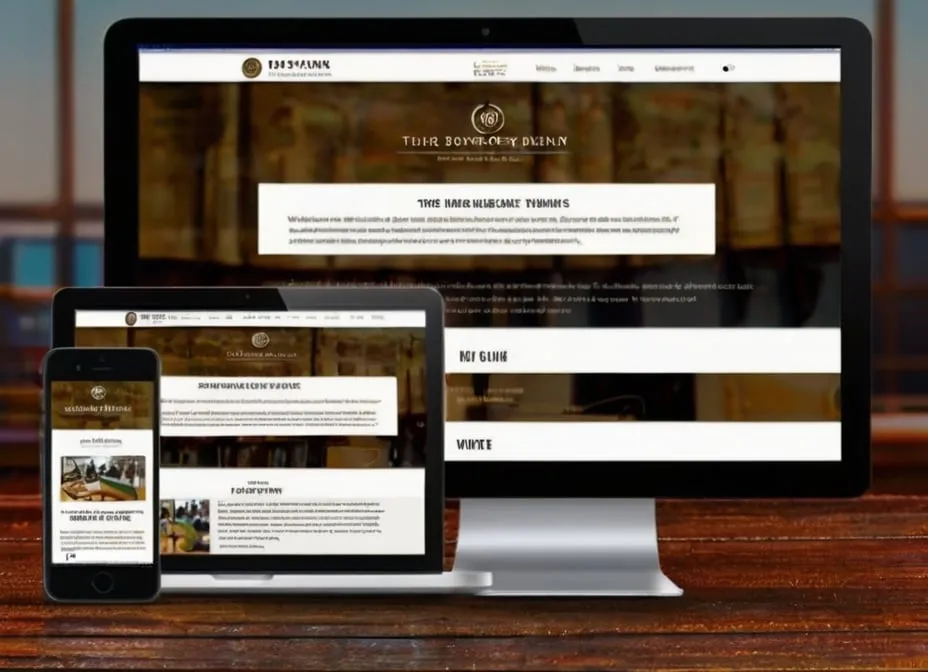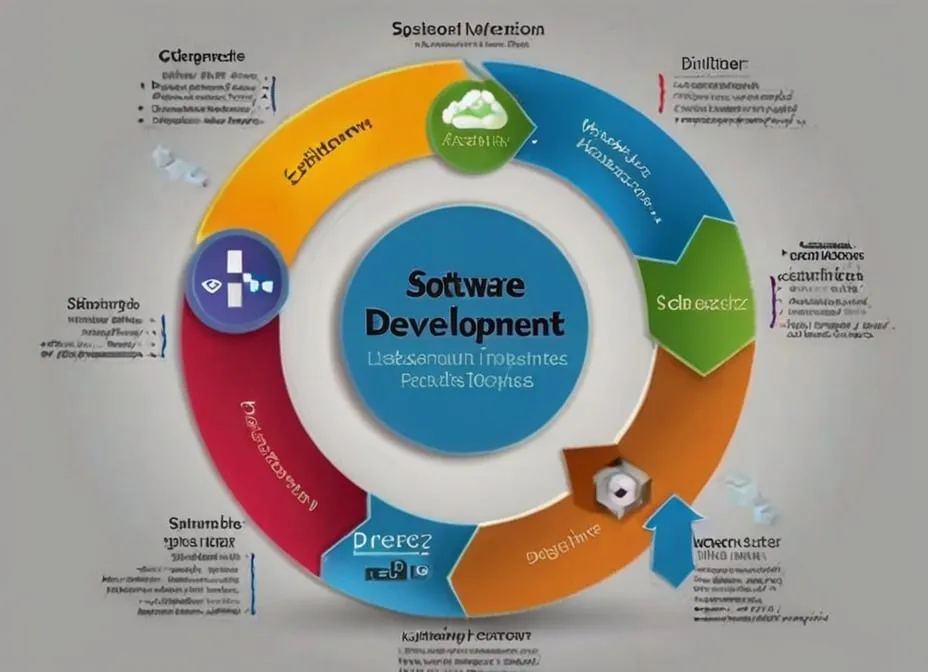The Gig Economy: Navigating Freedom, Flexibility, and Risks

Introduction to the Gig Economy
In today's rapidly evolving job market, the gig economy has emerged as a significant force, challenging traditional employment norms. This new paradigm offers workers the freedom to take on temporary, flexible jobs or contracted work assignments, often facilitated by digital platforms or apps. But with this newfound flexibility comes an equally divisive debate: Does the gig economy truly provide the promised freedom and flexibility, or does it usher in a new era of uncertainty and risk?
What is the Gig Economy?
The gig economy refers to a labor market characterized by short-term contracts or freelance work assignments, rather than permanent jobs. Gig workers are independent contractors who take on temporary engagements or "gigs" for various companies or individuals, often through online platforms like Uber, Upwork, or Fiverr.
Rise of the Gig Economy
The gig economy has seen a meteoric rise in recent years, fueled by technological advancements, changing workforce preferences, and the increasing desire for flexible work arrangements. The proliferation of smartphones, apps, and online platforms has made it easier than ever for individuals to find and take on gig work, while companies can tap into a diverse pool of talent on an as-needed basis.
Pros and Cons of the Gig Economy
Proponents of the gig economy tout the freedom and flexibility it offers, allowing workers to choose their schedules, work from anywhere, and pursue multiple income streams. However, critics point to the lack of job security, inconsistent income, and absence of traditional employee benefits as significant drawbacks.
Understanding the Debate
The debate around the gig economy is complex and multifaceted, with arguments on both sides. As more individuals embrace this new way of working, it's crucial to understand the potential benefits and drawbacks, and how they align with personal values, priorities, and long-term goals.
Flexibility and Freedom
One of the most appealing aspects of the gig economy is the promise of flexibility and freedom it offers workers. Let's delve into the various facets of this alluring proposition.
Freedom to Choose Work
Variety of Opportunities
The gig economy provides workers with a vast array of opportunities across various industries and skill sets. Whether you're a writer, designer, programmer, or driver, there's likely a gig that matches your expertise and interests.
Work-Life Balance
With the ability to choose when and how much to work, gig workers can better balance their professional and personal lives. This flexibility is particularly appealing to individuals with family obligations, health concerns, or those pursuing other interests outside of work.
Location Independence
Many gig jobs can be performed remotely, allowing workers to work from anywhere with an internet connection. This freedom to work from home, a coffee shop, or even while traveling, offers a level of location independence that traditional jobs often lack.
Being Your Boss
Control Over Schedule
As a gig worker, you have the autonomy to set your schedule and decide when you want to work. This level of control can be incredibly empowering, allowing you to structure your workday around other commitments or personal preferences.
Pursue Passions
The gig economy enables individuals to pursue their passions and interests while earning an income. Whether it's writing, coding, or creating art, gig work provides an avenue for monetizing skills and talents that may not fit neatly into traditional employment opportunities.
Entrepreneurial Spirit
Many gig workers embrace an entrepreneurial mindset, taking charge of their careers and building their brands. This sense of ownership and control over one's professional life can be incredibly fulfilling and motivating.
Supplemental Income
Extra Income Stream
Gig work can serve as a valuable supplemental income stream, allowing individuals to earn additional money on top of their primary job or to bridge gaps between traditional employment opportunities.
Financial Flexibility
The ability to take on additional gigs when needed can provide financial flexibility, helping workers manage unexpected expenses, pay off debts, or save for specific goals.
Diversifying Income Sources
By diversifying income sources through gig work, individuals can reduce their reliance on a single employer or income stream, potentially mitigating the impact of job loss or financial instability.
Uncertainty and Risks
While the gig economy offers attractive benefits, it also carries inherent risks and uncertainties that must be carefully considered. Let's explore some of the key concerns and challenges associated with this new way of working.
Lack of Job Security
No Guaranteed Income
Unlike traditional employment, gig work does not offer the security of a steady paycheck. Workers may experience periods of inconsistent or scarce work, leading to financial instability and unpredictable income streams.
Unpredictable Work Flow
The nature of gig work can be unpredictable, with fluctuations in demand and availability of assignments. This lack of consistency can make it challenging to plan and budget effectively.
Lack of Benefits
Most gig workers are classified as independent contractors, which means they are not entitled to traditional employee benefits such as health insurance, paid time off, or retirement plans. This lack of a safety net can be a significant concern, particularly in the event of illness, injury, or during retirement years.
Isolation and Loneliness
Lack of Coworker Interactions
While gig work offers flexibility, it can also lead to a sense of isolation and loneliness. Without the traditional office setting and coworker interactions, some workers may struggle to maintain a sense of community and social connections.
Working Remotely
Many gig jobs involve remote work, which can further contribute to feelings of isolation and disconnect from a professional community or support system.
Difficulty Building Relationships
The transient nature of gig work can make it challenging to build long-lasting professional relationships or networks, which are often crucial for career advancement and personal growth.
Financial Instability
Inconsistent Income
The unpredictable nature of gig work can lead to inconsistent income streams, making it difficult to plan and budget effectively. Periods of low demand or scarce assignments can create financial strain and uncertainty.
Saving for Retirement
Without access to employer-sponsored retirement plans, gig workers must take the initiative to set aside funds for their retirement savings. This can be challenging, especially during periods of financial instability or when income is inconsistent.
Lack of Safety Net
The absence of traditional employee benefits, such as health insurance or unemployment benefits, can leave gig workers vulnerable in times of illness, injury, or job loss. This lack of a safety net can be a significant source of stress and uncertainty.
Finding the Right Balance
As with many aspects of life, finding the right balance between the benefits and drawbacks of the gig economy is crucial. By understanding personal priorities and values, individuals can make informed decisions about how to navigate this new world of work.
Understanding Your Priorities
Financial Stability vs. Flexibility
One key consideration is weighing the importance of financial stability against the desire for flexibility. Some individuals may prioritize a steady income and job security, while others may value the freedom and autonomy that gig work provides.
Personal Values and Goals
It's essential to reflect on personal values and long-term goals. Does the gig economy align with your desired lifestyle, work-life balance, and career aspirations? Identifying these priorities can help guide decisions about embracing gig work fully, combining it with traditional employment, or pursuing a different path altogether.
Short-term vs. Long-term Thinking
While the gig economy may offer short-term flexibility and income opportunities, it's crucial to consider long-term implications as well. Factors such as retirement planning, career progression, and financial stability should be carefully evaluated.
Combining Gig Work with Traditional Employment
For many individuals, a balanced approach that combines gig work with traditional employment may be the ideal solution. This hybrid model can provide the best of both worlds, offering financial stability and benefits while still allowing for flexibility and supplemental income.
Transitioning Strategies
When transitioning between traditional employment and gig work, it's important to have a well-thought-out strategy. This may involve gradually building a client base or portfolio while still employed, or maintaining a side gig alongside a full-time job.
Diversifying Income Streams
Combining gig work with traditional employment can help diversify income streams, reducing the risk of relying solely on one source of income. This diversification can provide a financial buffer and increased stability.
Managing Multiple Commitments
Juggling multiple commitments can be challenging, but effective time management, communication, and boundary-setting are key. Setting realistic expectations and prioritizing self-care can help prevent burnout and maintain a healthy work-life balance.
Building a Sustainable Gig Career
For those who choose to pursue gig work as a full-time endeavor, developing a sustainable and successful career path is essential.
Developing a Niche
Specializing in a specific niche or skill set can help differentiate yourself in a crowded market and command higher rates. Building expertise and a strong reputation within a particular field can lead to more consistent work and opportunities.
Personal Branding
In the gig economy, personal branding is crucial. Establishing a professional online presence, showcasing your work, and leveraging networking platforms can help attract potential clients and increase visibility.
Networking and Building Connections
Building a strong professional network and fostering relationships within your industry can lead to referrals, collaborations, and new opportunities. Attending industry events, joining online communities, and actively engaging with peers can be invaluable for sustaining a successful gig career.
The Future of Work
As we look ahead, it's clear that the gig economy will continue to shape the future of work, driven by technological advancements and shifting workforce dynamics.
Technological Advancements
Automation and AI
The rapid development of automation and artificial intelligence (AI) technologies will likely impact the types of jobs and skills in demand within the gig economy. While some tasks may become automated, new opportunities may arise in fields such as data analysis, AI development, and creative industries.
Remote Work Tools
The proliferation of remote work tools, such as video conferencing, project management software, and collaboration platforms, will further enable and facilitate gig work across various industries and geographic locations.
Changing Job Landscape
As technology disrupts traditional industries, new job roles and career paths will emerge, potentially creating new opportunities for gig workers to leverage their skills and expertise in innovative ways.
Shifting Workforce Dynamics
Millennial and Gen Z Preferences
Younger generations, such as Millennials and Gen Z, have shown a preference for flexible work arrangements and a desire for work-life balance. This shift in priorities and values may drive more individuals toward the gig economy.
Corporate Adaptation
As companies recognize the benefits of a flexible workforce and the need to attract top talent, many may adopt more gig-friendly policies and embrace remote work and alternative employment arrangements.
Government Policies and Regulations
As the gig economy continues to grow, governments may need to reassess existing labor laws and regulations to address issues such as worker classification, benefits, and taxation. Policy changes could significantly impact the future landscape of the gig economy.
Embracing Flexibility and Adaptability
To thrive in the future of work, individuals and organizations alike must embrace flexibility and adaptability as key competencies.
Continuous Learning
In a rapidly changing job market, continuous learning and skill development will be essential for staying relevant and competitive. Gig workers must be proactive in upskilling and acquiring new knowledge to meet evolving market demands.
Developing Transferable Skills
Cultivating transferable skills, such as problem-solving, critical thinking, communication, and digital literacy, can increase job mobility and adaptability across various gig opportunities and industries.
Preparing for Change
Both gig workers and traditional employees must be prepared for change and disruption. Developing resilience, embracing lifelong learning, and fostering an entrepreneurial mindset can help navigate the uncertainties and seize new opportunities in the ever-evolving world of work.
As the gig economy continues to reshape the workforce, it's essential to approach this paradigm shift with an open mind and a willingness to adapt. By understanding the potential benefits and risks, individuals can make informed decisions that align with their personal values, priorities, and long-term goals. Ultimately, the gig economy presents both opportunities and challenges and finding the right balance will be key to thriving in this new era of work.
FAQ
- What are the main benefits of the gig economy? The gig economy offers workers flexibility, autonomy, and the ability to choose their work assignments. It allows for a better work-life balance, the freedom to pursue multiple income streams, and the opportunity to monetize personal skills and passions. Additionally, gig work provides location independence and the ability to be your boss.
- What are the potential drawbacks of the gig economy? Some of the main drawbacks of the gig economy include lack of job security, inconsistent income, and the absence of traditional employee benefits like health insurance and retirement plans. Gig workers may also experience isolation, loneliness, and difficulty building professional relationships. Financial instability and the lack of a safety net are also significant concerns.
- How can individuals balance the pros and cons of the gig economy? Finding the right balance involves understanding personal priorities, values, and long-term goals. Some individuals may choose to combine gig work with traditional employment to achieve a balance between flexibility and stability. Others may opt to build a sustainable gig career by developing a niche, strong personal branding, and a robust professional network.
- What role will technology play in the future of the gig economy? Technological advancements like automation, AI, and remote work tools will significantly impact the gig economy. While some tasks may become automated, new opportunities will arise in fields like data analysis, AI development, and creative industries. Remote work tools will further facilitate gig work across various industries and locations.
- How might government policies and regulations affect the gig economy? As the gig economy continues to grow, governments may need to reassess existing labor laws and regulations to address issues such as worker classification, benefits, and taxation. Policy changes could significantly impact the future landscape of the gig economy, potentially providing more protections or creating new challenges for gig workers.










